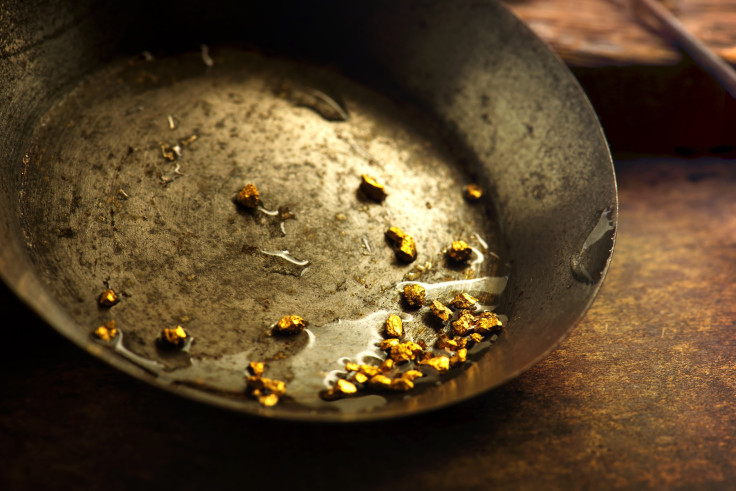Gold In Your Poop?: Scientists Claim Millions Of Dollars In Metals Can Be Found In Human Feces

It’s possible there’s gold in your poop, according to a group of scientists with the U.S. Geological Survey (USGS). Millions of dollars in it.
In addition to the food we eat, human waste contains a variety of metals and minerals — including gold, copper, and silver, which find their way into waste through beauty products, detergents, and other products. In their study, the researchers measured the amount of gold in human waste product, and found that they were at the “level of a minimal mineral deposit,” Kathleen Smith, a USGS geologist who worked on the study, said. This means that if those levels were found in rock, they’d be considered a possible mining prospect.
Mining for gold…in poop? It sounds crazy, but here’s how it could potentially work. Human waste gets flushed down the toilet, where it travels to a wastewater treatment plant. There, it’s separated into biosolids and treated water through a series of physical, biological, and chemical processes. Half of the biosolids, or about 3.5 million tons in the U.S., is sent to landfills or incinerated. The other half is used as a fertilizer. But what if scientists were able to use biosolids to mine for gold?
Smith and her team note that miners use certain chemicals called leachates to pull metals out of rock, and this same technique could be used to pull gold out of waste. The researchers took waste samples from small towns in the Rocky Mountains, rural areas, as well as cities. They found a variety of minerals and metals in biosolids; mining them could provide us with a new way to get gold, silver, and other rare elements like palladium and vanadium — which are used in electronics and alloys.
“If you can get rid of some of the nuisance metals that currently limit how much of these biosolids we can use on fields and forests, and at the same time recover valuable metals and other elements, that’s a win win,” Smith said in a press release.
She continued: “We have a two-pronged approach. In one part of the study, we are looking at removing some regulated metals from the biosolids that limit their use for land application. In the other part of the project, we’re interested in collecting valuable metals that could be sold, including some of the more technologically important metals, such as vanadium and copper that are in cell phones, computers and alloys.”
They will be presenting the research at the 249th National Meeting & Exposition of the American Chemical Society (ACS).
Published by Medicaldaily.com



























